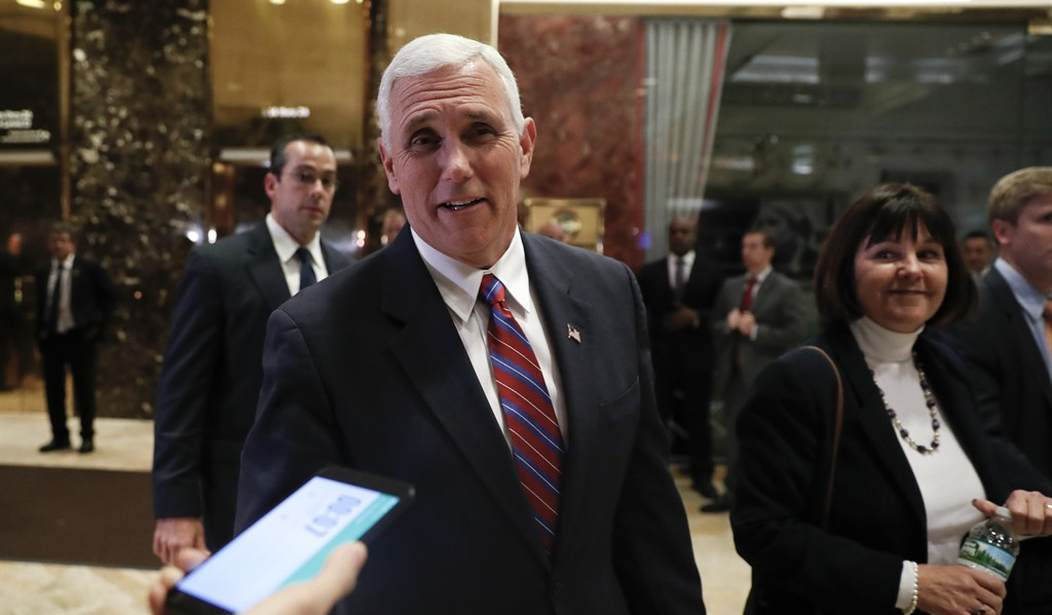No sooner had the election results rolled in late last Tuesday night, heralding a Donald Trump victory and continued Republican control of both houses of the Congress, than many Republicans began calling on Speaker Ryan to get the House ready to start passing Trump’s agenda. The better call would have been to remind both Ryan and Trump that it is not when the House of Representatives serves as a rubber stamp for the President, that good and fiscally conservative actions result. Rather, it is when there is a degree of positive tension between the House majority and the President of the same or a different party that the system constructed many decades ago by our Founders, actually works best.
It is a team effort, to be sure, and President Trump has every right to press for enactment of his legislative and fiscal agendas. But Paul Ryan, as Speaker and Leader of the House of Representatives, has an equally important responsibility to ensure that the President’s agenda fits within the budgetary and legislative agendas of the House and of the majority of members elected thereto. Truly, the last thing President Trump should want, is a Speaker who salutes and says “Yessir” whenever the President calls.
While many students of history focus on the differences between the House and the Senate in terms of their procedural powers; the perhaps more relevant focus should be on the relationship between the House of Representatives and the President.
Recent history is full of examples of the bad things that happen when the House forgets or willfully ignores its separate responsibility to carefully consider and amend a president’s legislative proposals; or blindly pushes a president’s budgetary proposals simply because that president happens to be of the same political party as the majority. President George W. Bush’s vaunted “No Child Left Behind Act,” sent to the House in January 2001 and rushed though both houses with little real consideration, turned out to be a law widely panned by educators and many Republicans as costly and unworkable.
Recommended
Just a couple of years later, Bush demanded the GOP-controlled House pass the prescription drug benefit bill, despite cries by conservatives that its projected costs were drastically and artificially under-estimated. It passed, and has in fact turned out to be hugely more expensive than the Bush Administration’s projections.
The good news is that in Trump and Ryan, there appears to be the ingredients for success in this regard. For one thing, and unlike the current President who almost never dismounted from his high horse to climb the steps of Capitol Hill to meet with members of Congress (even of his own Party), Trump shows no such arrogance. In fact – and as he notes in his books – Trump enjoys the art of negotiating; a critical component of good legislation. Moreover, he respects a tough and informed adversary and is disposed to run roughshod over weak opponents – a characteristic some of his early GOP Primary opponents recognized too late.
Ryan, too, seems to have a good head for negotiating; although his job in a Trump-Ryan tete-a-tete will be more difficult since Trump only has one point of view (his) to worry about, while Ryan has many to keep in mind and in line.
The House and its leadership must never forget that its fiscal responsibility is owed not to the incoming or any president, but to the people and the future of our country. Thus, and here again unlike during the first Administration of George W. Bush, if President Trump asks the House to pass a budget that, for whatever great reasons he cites, busts the budget and increases the federal deficit, Ryan must say “No.” As we recall, it took less than two budget cycles for new President Bush and the GOP-controlled Congress to bust the balanced budget so laboriously crafted in 1997 between then-Speaker Gingrich and then-Democratic President Bill Clinton; and Washington has never looked back since.
The runaway budget deficits that became a hallmark of the George W. Bush Administration were a primary factor in the GOP losing control of the House in 2006 for two cycles; and it was in those few years that Obamacare became law, Dodd-Frank was enacted, and all manner of other legislative and executive actions decisions made, which now are ripe to be addressed and undone.
America is on the cusp of an historic opportunity to once again enact constitutionally- and fiscally-sound legislative and budget measures. While it may appear counter-intuitive, to aid in accomplishing this, President Trump should resist demanding a House of Representatives that rubber stamps his every decision. Instead, he should welcome one that will sometimes challenge him and occasionally say “No” – because that’s a recipe for real change, good change, and long-lasting change.
























Join the conversation as a VIP Member